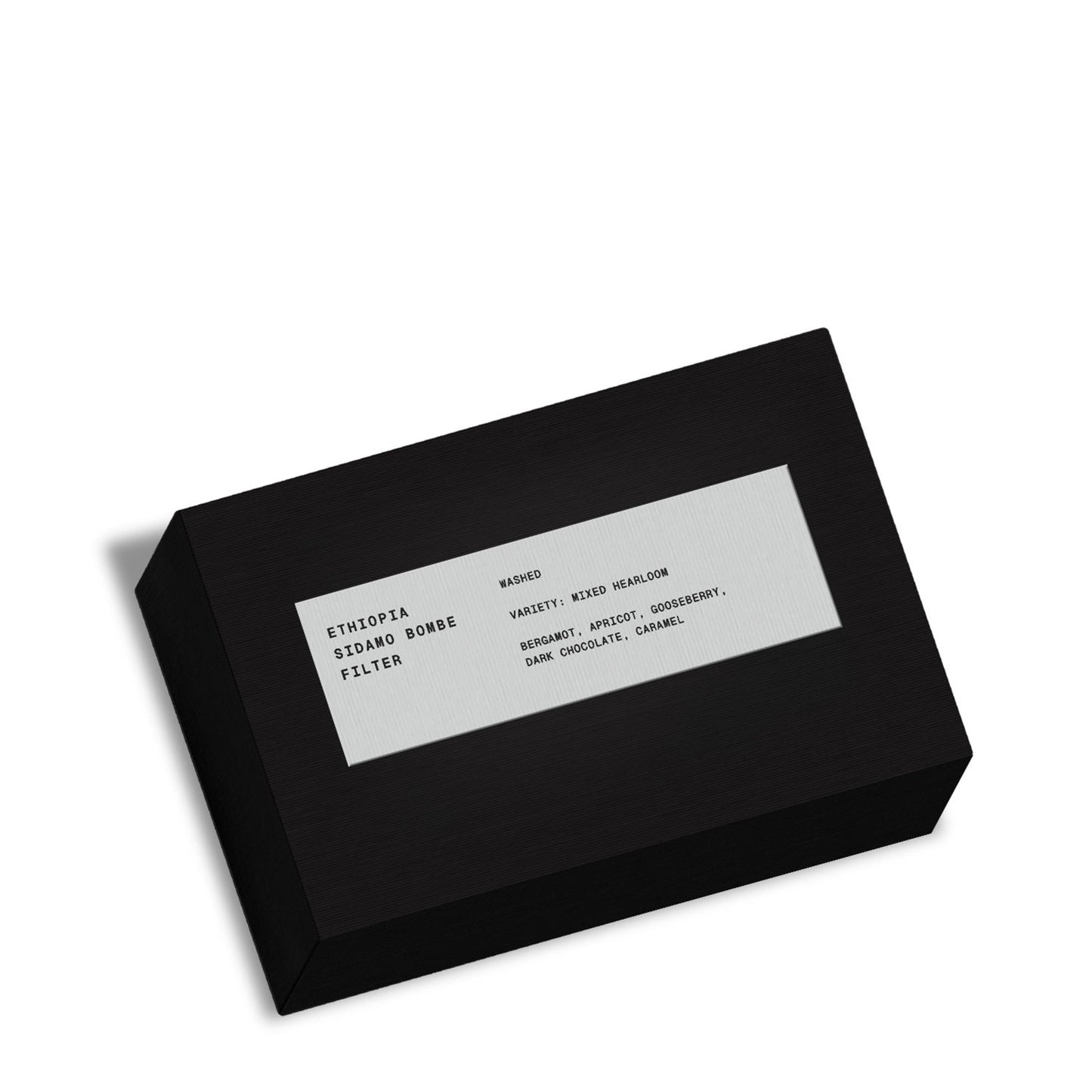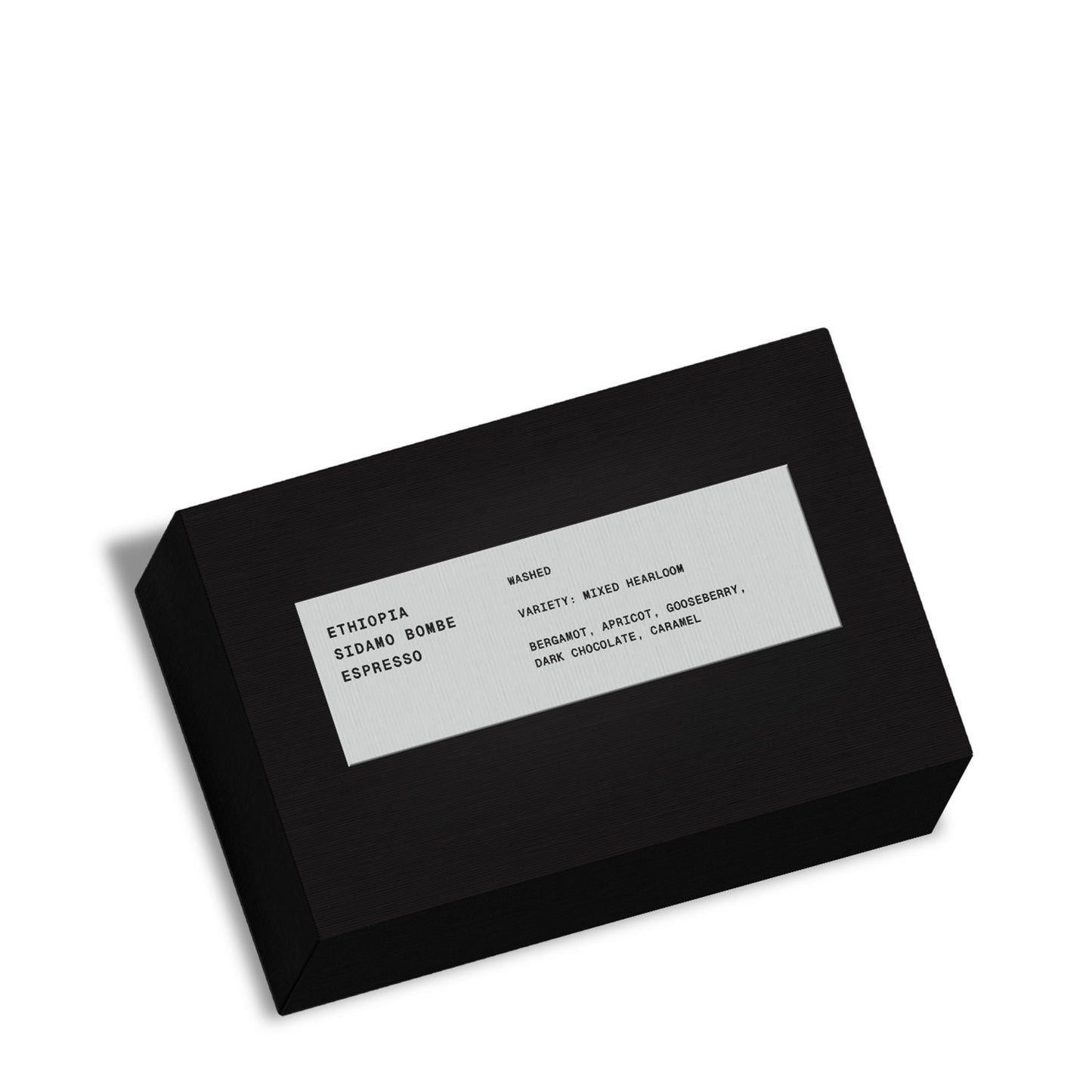GEMI
ETHIOPIA SIDAMO BOMBE FILTER / ESPRESSO COFFEE
ETHIOPIA SIDAMO BOMBE FILTER / ESPRESSO COFFEE
Couldn't load pickup availability
Name: ETHIOPIA SIDAMO BOMBE FILTER COFFEE
Country: Ethiopia
Region: Bensa District, Sidama
Variety: Heirloom
Process: Washed - dry fermented
Tasting notes: Bergamot, apricot, gooseberry, dark chocolate, caramel bold and round cup
Altitude: 2000 - 2400 masl
Ground/Beans: Beans
__
This coffee is named after the Bombe Mountains which is the area where most of the farmers who grow and contribute cherry to this lot live and work. Producers from Bombe as well as from Shantawene and Keramo communities have been delivering their best cherry to the Bombe site since the harvest season of 2017/18. It’s here that the lots are separated by quality into fermentation tanks and specific drying locations. The Bombe site layout is organised in such a way that allows for special processing techniques, such as shaded fermentation tanks and washing channels as well as mesh shaded drying tables. The wet mill is organised and run by a team including a female agronomist, Atkilt Dejene, who has also worked with the award-winning Geisha Village project, among others such as processing specialist, Eyasu Bekele, whom we worked with for the Reko Koba project several years running. The volume capacity at Bombe washing staton is at max 2.5 million kgs of cherries, but for the past couple year, this site has maintained a strict dedication to producing outstanding quality above quantity. The process for this coffee was developed after Kenean, the son of Asefa Dukamo, the owner and manager of Daye Bensa visited Guatemala and was impressed with the processing protocols at La Esperanza Antgua, run by Josue Morales from Los Volcanes Coffee. Josue called Daye Bensa’s quality manager and explained his washing and dry fermentation technique and this coffee is the result of that collaboration. Processed by a variation on the traditional washed process (fruit removed from the beans before drying) that adds no water to the tank during fermentation, hence a “dry” fermentation. The dry fermentation involves letng the coffees rest in climate controlled fermentation tanks after depulping (where the seed is removed from the cherry and the pulp washed of). The coffee rests dry while fermentation kickstarts faster than normal in the warm air environment, resulting in a full and complex, red fruit favour profile, while still being washed of its pulp. This process uses much less water and in doing so contributes to the environmental sustainability of the washing staton in its production.
Share





